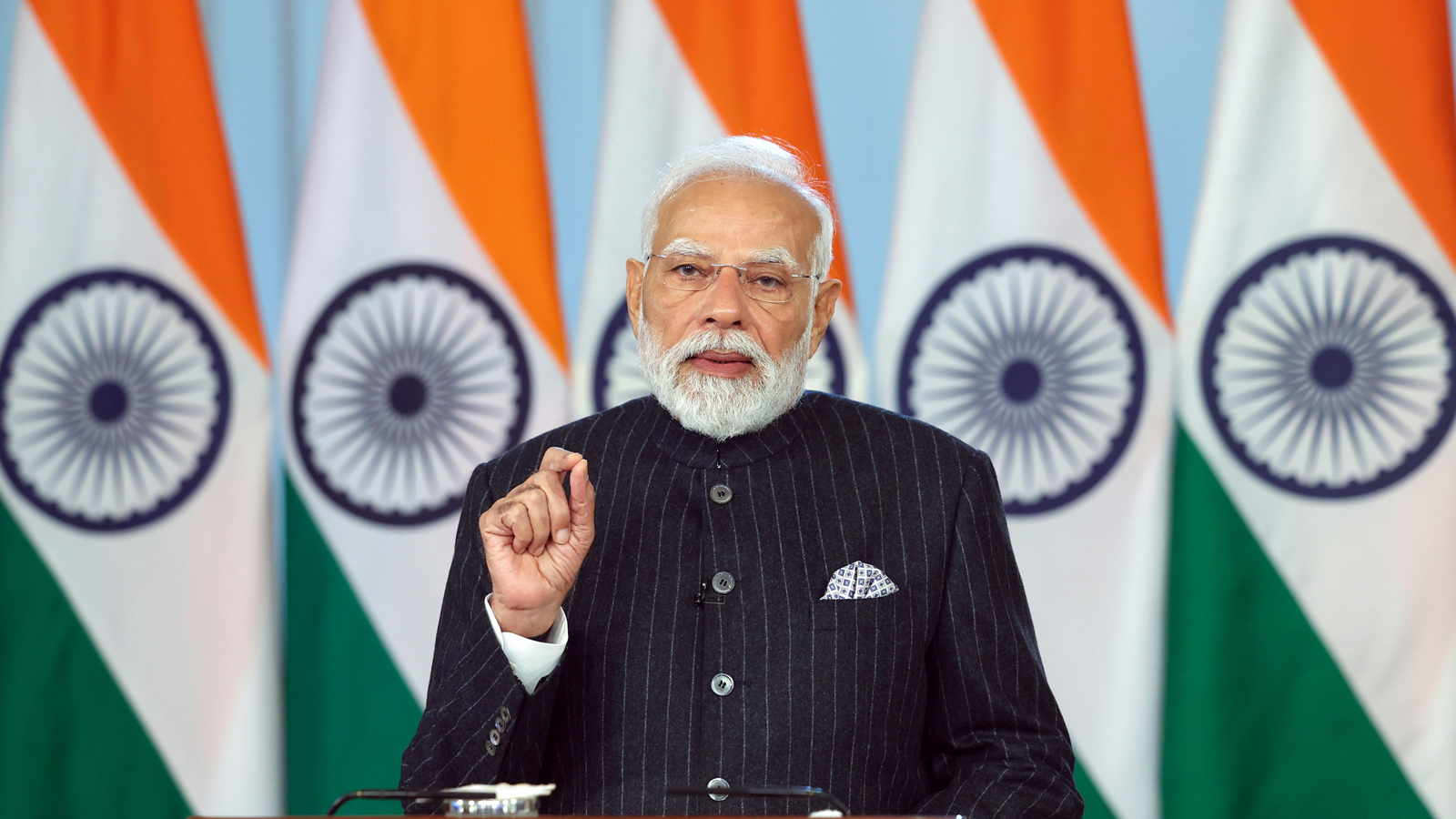Prime Minister Narendra Modi on Thursday inaugurated Skyroot Aerospace’s new Infinity Campus in Hyderabad via video conferencing and unveiled the company’s first orbital rocket, Vikram-I, designed to launch satellites into orbit. Union Minister G. Kishan Reddy attended the event in Hyderabad.
Calling it a landmark moment for India’s private space sector, the Prime Minister said that the country is “witnessing an unprecedented opportunity in the space sector” and noted that the private space ecosystem is expanding at a rapid pace.
“Skyroot’s Infinity Campus reflects India’s new thinking, innovation, and youth power,” he said. “Our youth, with their innovation, risk-taking ability, and entrepreneurship, are reaching new heights.”
He congratulated Skyroot co-founders Pawan Kumar Chandana and Naga Bharath Daka, describing them as an inspiration for emerging space innovators. “They trusted themselves, did not shy away from taking risks, and today the entire nation is witnessing their success.”
ISRO’s legacy and India’s rising space ambitions
PM Modi recalled that India’s space journey began with limited resources but limitless ambition. “From carrying rocket parts on a bicycle to developing some of the world’s most reliable launch vehicles, India has proven that the height of one’s dreams is determined not by resources but by resolve,” he said.
He credited ISRO’s decades of achievements for building global confidence in India’s space capabilities. “ISRO has, for decades, given new wings to our space journey. Its credibility, capacity and value have established India’s unique identity in the global space landscape.”
Private sector reforms powering growth
PM Modi underlined that the space sector is now essential for communication, agriculture, marine monitoring, weather services, urban planning and national security – factors that prompted the government to implement major reforms.
He highlighted policy measures such as opening the space sector to private participation, supporting startups through IN-SPACe, and preparing a new national space policy. “In the last six to seven years, India has transformed its space sector into an open, cooperative and innovation-driven ecosystem,” he said.
More than 300 space startups are now active in India, many of which began with very small teams and minimal resources. “This spirit has given birth to the Private Space Revolution in India,” the Prime Minister noted, adding that young engineers and designers are developing technologies in propulsion, composite materials, rocket stages and satellite platforms.
Global opportunities and rising launch demand
Pointing to the growing global demand for small satellites and frequent launches, the Prime Minister said, “Space is now a strategic asset. In the coming years, the global space economy will grow manifold, and this presents a major opportunity for India’s youth.”
He said India’s engineering talent, manufacturing strength and reliable launch infrastructure make the country a preferred destination for global satellite production and launch services. “India has space capabilities possessed by only a few nations. Our capability is cost-effective and reliable, which is why the world has high expectations from us.”
Startup boom across sectors
PM Modi linked the rise of private space enterprises to the broader startup revolution in India across fintech, agritech, healthtech, climate solutions and defence. “India is now the world’s third-largest startup ecosystem,” he said, noting that startups are emerging from smaller towns as well as big cities.
He also highlighted the government’s push in semiconductors, pointing to the expansion of fabrication units and design hubs to strengthen the electronics value chain.
Emphasising that India’s youth consistently put national interest first and make the most of every opportunity, PM Modi said that opening the space sector unleashed the enthusiasm of young Indians – especially the Gen-Z generation.
Future reforms: Opening the nuclear sector
PM Modi announced that India is now moving toward opening the nuclear sector to private participation. “A strong role for the private sector is being envisioned in this field, which will open opportunities in small modular reactors, advanced reactors and nuclear innovation,” he said.
He added that this reform will strengthen India’s energy security and technological leadership.
Focus on research and innovation
The Prime Minister said that India’s future progress depends on the research being conducted today. He cited initiatives such as the National Research Foundation, One Nation, One Subscription, the ₹1 lakh crore Research & Innovation Fund, and over 10,000 Atal Tinkering Labs, with another 50,000 planned.
“The coming era belongs to India, its youth and its innovations,” he said.
Recalling his remarks on Space Day, he reiterated that India aims to significantly expand launch capacity and create five new space-sector unicorns in the next five years. “The progress of the Skyroot team makes it clear that India will achieve every goal it has set.”
Government support for innovators
Assuring full support, PM Modi said, “The government stands firmly with every young person, every startup, every scientist, engineer and entrepreneur at every step.”
He congratulated Skyroot once again and urged the nation to work together to make the 21st century “the century of India – on Earth and in space.”














